News
SEE Dollar to Naira Exchange Rate at Black Market July 31, 2024: USD to NGN
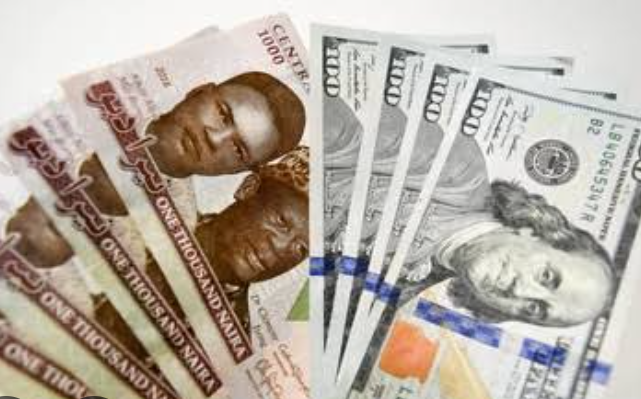
By Kayode Sanni-Arewa
For many Nigerians, especially those engaged in foreign trade, travel, and investments, there is a nagging concern for the dollar-naira exchange rate. The black market rate for dollars to naira, parallel or Aboki FX as some know it will most of the time give different rates from the official CBN rates. At this point, the exchange rate was still moving up and down. The current dollar to naira exchange rate today, July 31, 2024, what drives the rate, and how all these affect the economy of Nigeria are discussed in this article.
*Dollar to Naira Today Black Market.*
*Current Black Market Dollar to Naira exchange rate.*
Buying Rate: N1595
Selling Rate: N1600
*Official CBN Rates*
Buying Rate: N1684
Selling Rate: N1685
*Understanding the Black Market for Forex*
*What is the Black Market?*
The black market refers to unofficial exchange channels where currencies are traded without government regulation. This market often provides more competitive rates due to the high demand and limited supply of foreign currencies.
*Why Do People Use the Black Market?*
People turn to the black market due to:
*Favorable Rates:* Often higher than official rates.
*Accessibility:* Easier to obtain foreign currency without stringent regulatory requirements.
*Factors Influencing Black Market Rates.*
Economic Policies Government decisions on interest rates, inflation control, and forex regulations by the CBN directly affect the naira’s value. Policy adjustments aimed at stabilizing the naira impact the exchange rates.
*Supply and Demand*
The availability of foreign currency versus its demand significantly influences exchange rates. A shortage of foreign currency or high demand leads to naira depreciation.
*Political Stability* Geopolitical events and internal political stability affect investor confidence.
Political unrest or uncertainty can cause the naira to depreciate, while stability strengthens it.
*Global Economic Conditions*
Global market conditions,such as oil prices, international economic trends, and global inflation rates, influence the naira’s value. A significant drop in oil prices, for instance, negatively impacts Nigeria’s economy.
*Comparing Dollar to Naira Official and Black Market Rates*
*Why the Disparity?*
Several factors contribute to the disparity:
*Supply and Demand:* Limited availability in the official market drives people to the black market.
*Regulatory Restrictions:* CBN imposes limits on forex availability, leading to higher black market rates.
*Economic Instability:* Fluctuations in oil prices and inflation prompt people to seek more favorable black market rates.
*Impact on the Economy*
High black market rates can:
*Inflation:* Increase costs for imported goods.
*Investment:* Deter foreign investment due to economic instability.
*Trade:* Benefit exporters while imposing higher costs on importers.
*Using the Parallel Market Safely*
*Tips for Transactions*
*Verify Rates:* Check reliable sources like Aboki FX for the latest rates.
*Reputable Dealers:* Engage with trusted Bureau De Change operators to avoid scams.
*Pounds and Euro to Naira Exchange Rates*
*Pounds to Naira (CBN Rates)*
Buying Rate: ₦2,139
Selling Rate: ₦2,140
*Euro to Naira (Black Market Rates)*
Buying Rate: ₦1,778
Selling Rate: ₦1,779
*Geegpay and Grey Online Exchange Platforms*
*Geegpay Rates*
EUR (€): Buying at ₦1,690.03, Selling at ₦1,695.55.
GBP (£): Buying at ₦1,950, Selling at ₦1,965.
USD ($): Buying at ₦1,504, Selling at ₦1,570.
*Grey Rates*
EUR (€): Buying at ₦1,640.03, Selling at ₦1,719 GBP.
(£): Buying at ₦1,902, Selling at ₦2,015.
USD ($): Buying at ₦1,550, Selling at ₦1,570
*FAQs on Dollar to Naira Exchange Rate.*
How much is a dollar to naira today in the black market? The buying rate is N1588, and the selling rate is N1590 as of July 29, 2024.
*Why does the black market offer higher rates than the CBN?* The black market rates are driven by supply and demand dynamics, regulatory restrictions, and economic instability.
*Is it legal to trade forex in the black market?* While the CBN discourages it, many engage in the black market due to the unavailability of sufficient forex through official channels.
*What are the risks of trading in the black market?* Risks include fluctuating rates, potential scams, and the legal gray area of such transactions.
*Can the CBN influence black market rates?* The CBN can influence these rates through monetary policy, forex
interventions, and regulatory measures, but direct control is limited.
*How often do black market rates change?* Rates can change on a daily or even multiple times per day, depending on market conditions and economic news.
*Conclusion on Dollar to Naira Black Market Rate Today.*
The black market dollar-to-naira exchange rate represents an interaction of intricate components: economic factors, regulatory frameworks, and market dynamics. It’s a reality for quite a good number of Nigerians who need forex, and this also highlights the depth and scope of the challenges and opportunities Nigeria has encountered in its economic landscape. Knowledge of these rates and the underpinning determinants is also quite instrumental in making decisions related to finance.
*Kerosene Sold To Nigerians At ₦1,555 Per Liter In June – NBS*
The National Bureau of Statistics has said that Nigerians paid an average of ₦1,555 per liter for kerosene in June as against what it sold for in June 2023.
The NBS, in its National Household Kerosene Price Watch Report on Tuesday, said the current price of kerosene increased from ₦1,450 in May by 7.22 percent.
On the report, a litre of kerosene sold at ₦1,236 per liter in June 2023. It increased by 25.73 percent at that price.
“The average retail price paid by consumers for a liter of Household Kerosene, HHK, in June 2024 was ₦1,555.11, showing an increase of 7.22% over ₦1,450.35 recorded in May 2024. Year-on-year, average retail price per liter of the product increased by 25.73% from ₦1,236.91 in June 2023,” it read.
Further analysis showed that in some Nigerian families, the price of cooking product varied from state to state. While, Kaduna, Benue and Zamfara states showed the highest increase in price; Kebbi, Taraba and Sokoto states showed the lowest price increase.
News
Belgian Ambassador Commits to Stronger Nigeria Ties
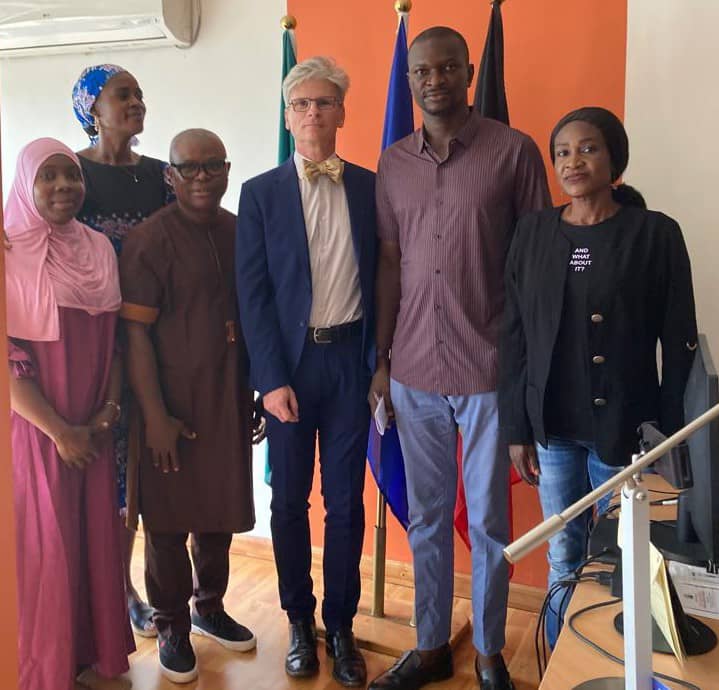
By Gloria Ikibah
The Embassy of Belgium in Nigeria has reaffirmed its commitment to deepening diplomatic relations with the country.
Belgian Ambassador Pieter Leenknegt stated this during a courtesy visit by the Diplomatic Correspondents’ Association of Nigeria (DICAN), led by its Chairman, Frederick Idehai, at the embassy in Abuja.Discussions centered on fostering collaboration, particularly in capacity-building initiatives for DICAN members and other areas of mutual benefit.
Addressing the delegation, Ambassador Leenknegt also commented on the ongoing discord between Senate President Godswill Akpabio and Kogi Senator Natasha Akpoti-Uduaghan, describing it as an unnecessary distraction, urging key stakeholders to promote dialogue and reconciliation in the interest of national stability.
Speaking further, Ambassador Leenknegt has some reservation over what he described as “sloppy journalism” among Nigerian Journalists which needs to be corrected.
This unpalatable adjective, according to the envoy, stems from an experience he had when he visited the Minister of the Federal Capital Territory, Nyesom Wike.
“It was a fruitful meeting I had with the FCT Minister with key areas of interest well highlighted.
“However, the next day I was surprised to find in over 13 print and online media that the meeting the previous day, was between the outgone Ambassador of the Embassy and with his photograph attached.
“This was a meeting I personally attended so how could they attribute it to my predecessor and attached his photo?
“That’s terrible and what it meant was that one person goofed and others copied from the original source without due verification,” he lamented.
Earlier in his remarks, DICAN Chairman, Comrade Idehai Frederick emphasised that the partnership will enhance cultural exchange between Nigeria and Belgium.
He said the role of media in promoting democracy, good governance and bilateral relations cannot be overemphasized.
“We will provide your country with the needed support in the area of quality and credible reportage for the sake of humanity,” Idehai said.
The visit also touched on the upcoming DICAN Diplomatic/Security International Conference, scheduled for June 19, 2025, in Abuja to brainstorm on how to make the world a better and safer place.
“We want to enhance bilateral relations through our engagement and agenda setting.
“When governments across the nations of the world know that journalists are interested in monitoring their programmes, they wake up and address their challenges,” Idehai stated.
News
Reps Minority Caucus Condemns Killings in Edo State

By Gloria Ikibah
The Minority Caucus of the House of Representatives has strongly condemned the recent killings of about 16 Nigerians, mainly northerners, by an armed group in Edo State.
In a statement signed by Minority Leader, Rep. Kingsley Chinda, Minority Whip, Rep. Ali Isa JC, Deputy Minority Leader Rep. Aliyu Madaki, and other leaders of the caucus on Saturday, the caucus described the attack as “barbaric” and “reprehensible,” warning that if such violence is not curbed, it could threaten national peace and unity.
“We find such brutal killings of innocent Nigerians in any part of the country by lawless mobs very reprehensible, and if allowed to fester without being put in check by responsible organs of the federal government, such actions could threaten the peace and unity of the country,” the statement read.
The lawmakers urged Nigerians to avoid taking the law into their own hands and instead seek the intervention of law enforcement agencies when faced with security concerns.
The Minority Caucus called for swift action, and urged President Bola Ahmed Tinubu to direct security agencies to investigate the incident and ensure those responsible are brought to justice.
“We implore all Nigerians to never resort to such jungle attacks on their fellow citizens but to always implore the services of lawful authorities whenever they notice any issue of concern.
“In the face of this grave incident, which is already setting emotions on edge in parts of the country, we hereby call on the President and Commander in Chief of the Armed Forces of the Federal Republic of Nigeria, His Excellency Senator Bola Ahmed Tinubu, GCFR, to direct the security agencies to investigate this matter and bring all those involved in the killings to book in order to prevent its recurrence. And also adequate compensation should be paid to the affected families,” they demanded.
The caucus also appealed to Nigerians to remain calm and allow the government to handle the matter.
“We also call on all Nigerians to remain calm, peaceful, and law-abiding and allow the federal and state governments to get to the root of this matter in the interest of justice,” the caucus stated.
The lawmakers extended their condolences to the families of the victims, and assured Nigerians of their commitment to ensuring justice is served.
“We express our sincere sympathies and condolences to the families of the victims even as we assure them and all Nigerians that we, the Minority Caucus of the House of Representatives, will remain eternally vigilant until justice is done on this matter,” the statement continued.
News
Police ‘rescue’ landlord, daughter from k!dnappers clutches in Lagos

By Kayode Sanni-Arewa
Suspected gunmen abducted a landlord and his daughter in the Ijede area of Ikorodu in Lagos.
In a statement on Sunday, Benjamin Hundeyin, the Lagos police spokesperson, said the kidnappers abducted the victims on Wednesday.
Hundeyin added that on Saturday, the command rescued the kidnapped victims unhurt and handed them over to their family members.
According to the police spokesperson, the command has launched a manhunt for the perpetrators.
“The police received information that some kidnappers invaded Ijede community and kidnapped two persons,” the statement reads.
“Upon receipt of the report, police operatives were mobilised to the scene where it was observed that the kidnappers forcefully gained entrance into the house of a 40-year-old man, killed the security dog and kidnapped him.
“The kidnappers equally forced their way into the nearby house and kidnapped the landlord’s 25-year-old daughter.
“With the collaborative efforts of both the police joint task force and other stakeholders, the kidnapped victims were rescued unhurt and handed over to their family members.
“The area is relatively calm and being closely monitored, and efforts are ongoing to apprehend the wanted suspects.”
-
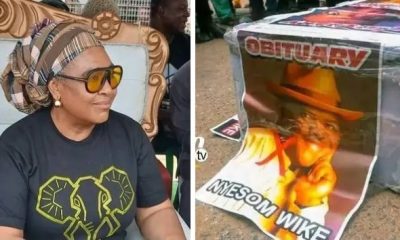
 News11 hours ago
News11 hours agoWike’s Aide reacts as photo appears online, points accusation finger at paid failed actress
-
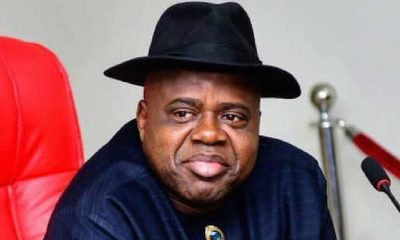
 News17 hours ago
News17 hours agoUpdated: WATCH moment Gov Diri’s Tech Adviser Kerry admits blowing up pipelines (Video)
-
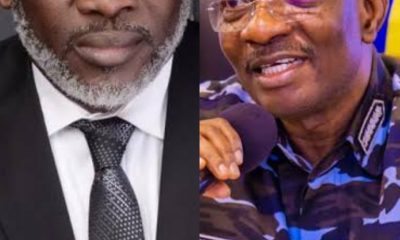
 News7 hours ago
News7 hours agoFormer HoR member, TeeJay Yusuf calls on IGP, Kogi govt, other agencies to curb rising insecurity in Okun-Yoruba
-
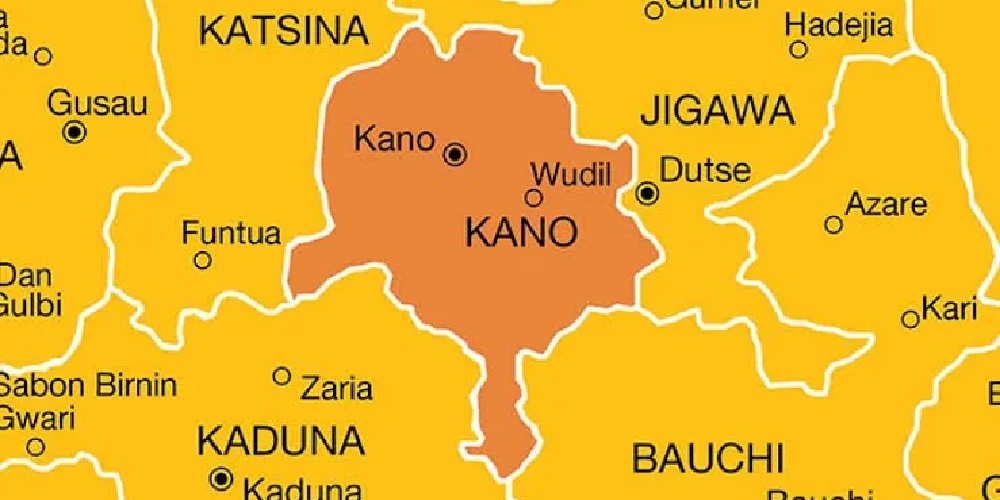
 News9 hours ago
News9 hours agoEdo Killings: Kano Govt Sends Fact-Finding Delegation, Demands Justice
-
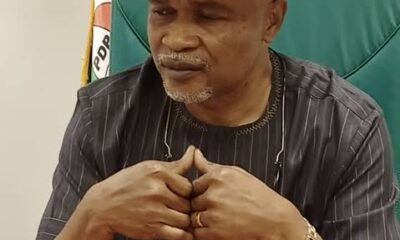
 News2 hours ago
News2 hours agoReps Minority Caucus Condemns Killings in Edo State
-
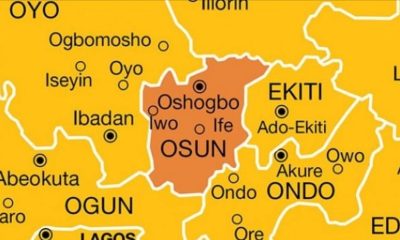
 News9 hours ago
News9 hours agoJust in: Popular Osun Monarch Joins Ancestors
-
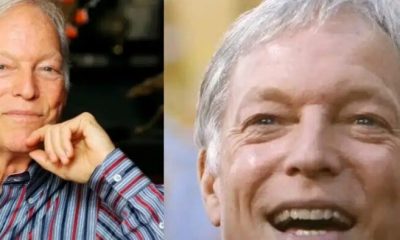
 News5 hours ago
News5 hours agoSad! Popular actor, Richard Chamberlain is dead
-
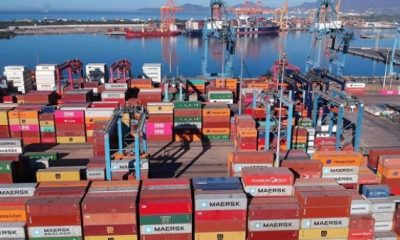
 News5 hours ago
News5 hours agoMali, Niger, Burkina Faso Impose 0.5% Levy On Goods From ECOWAS Nations





